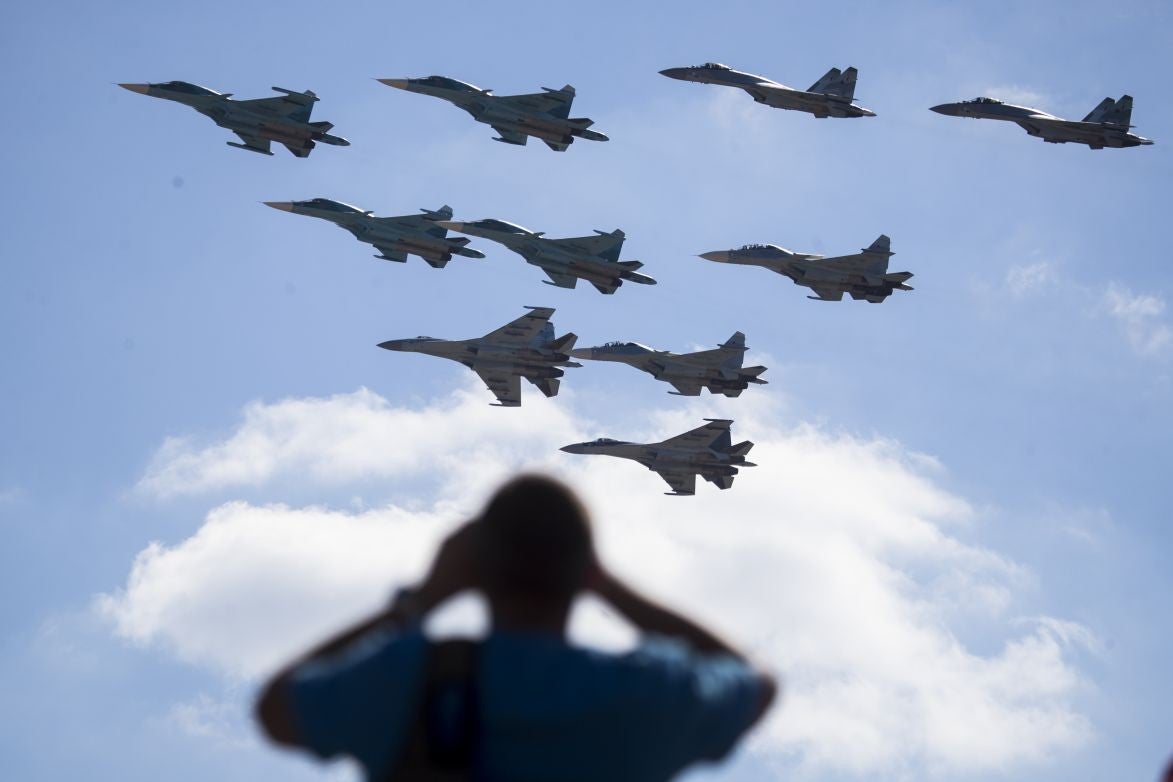Russia is preparing for huge war with west, warns Ukrainian President
Petro Poroshenko has warned Moscow may not pull its troops out of Belarus after its latest Zapad military exercises

The Ukrainian President has warned that Russia’s latest military drill shows it is preparing its forces for war in Eastern Europe.
Petro Poroshenko said that Moscow’s latest military exercise, which is due to be held in Belarus next week with up to 100,000 troops expected to mobilise on the EU’s eastern borders, demonstrated its increasing ambitions in the region.
Mr Poroshenko, a former oligarch who came to power following mass protests in 2013, said these latest war games show that Russia has no intention of handing back Crimea and or withdrawing from the separatist eastern regions, local news website Ukrainska Pravada.
In an address to the Ukrainian parliament he said: “There are no signs at the moment that Moscow would be ready to pull back from Donbass or leave Crimea.
“In fact, there is more and more evidence for its preparations for an offensive war of continental proportions.”
"Under the guise of strategic command exercises, we are not ruling out the creation of a new assault group of Russian troops to strike Ukrainian territory,” he said. “Some 2,000 transporters with soldiers and equipment have approached and are approaching our borders. There is no guarantee that after the end of these manoeuvres all this will return to Russia.”
Other former Soviet states such as Georgia and Lithuania have also raised concerns about the drill.
Former Georgian President Mikheil Saakashvili said the drill could be used as a front to station Russian troops in Belarus as a precursor to annexation, Newsweek reported.
The Kremlin has always denied it is arming pro-Russian rebels in eastern Ukraine as part of their conflict with the Ukrainian state.
It comes as Jens Stoltenberg, Nato’s secretary general, accused the Kremlin of “falling in its obligations” under international rules to allow in foreign observers.

So far Russia and Belarus have said only three Nato experts have been invited to watch some of the drills – which are supposed to test military preparedness in the face of an attack.
Western observers have rubbished the Kremlin’s claims that only 13,000 troops are expected to take part in their Zapad (“west”) exercises.
Under the international rules of the Organisation for Security and Cooperation in Europe, known as the Vienna Document, any country planning on carrying out a military exercise with more than 13,000 troops taking part must notify other countries in advance and invite them to observe it.
Speaking to British troops at a military base in Estonia where they have been based since March, Mr Stoltenberg said: “Briefings on the exercise scenario and progress; opportunities to talk to individual soldiers; and overflights over the exercise.

“This is something that is part of the Vienna document, an agreement regulating transparency and predictability relating to military exercises.
“So we call on Russia to observe the letter and the spirit of the Vienna document. Transparency and predictability are even more important when tensions are high to reduce the risks of misunderstandings and incidents," he added.
“Nato remains calm and vigilant and we are going to keep Estonia and our allies safe.”
Join our commenting forum
Join thought-provoking conversations, follow other Independent readers and see their replies
Comments
Bookmark popover
Removed from bookmarks